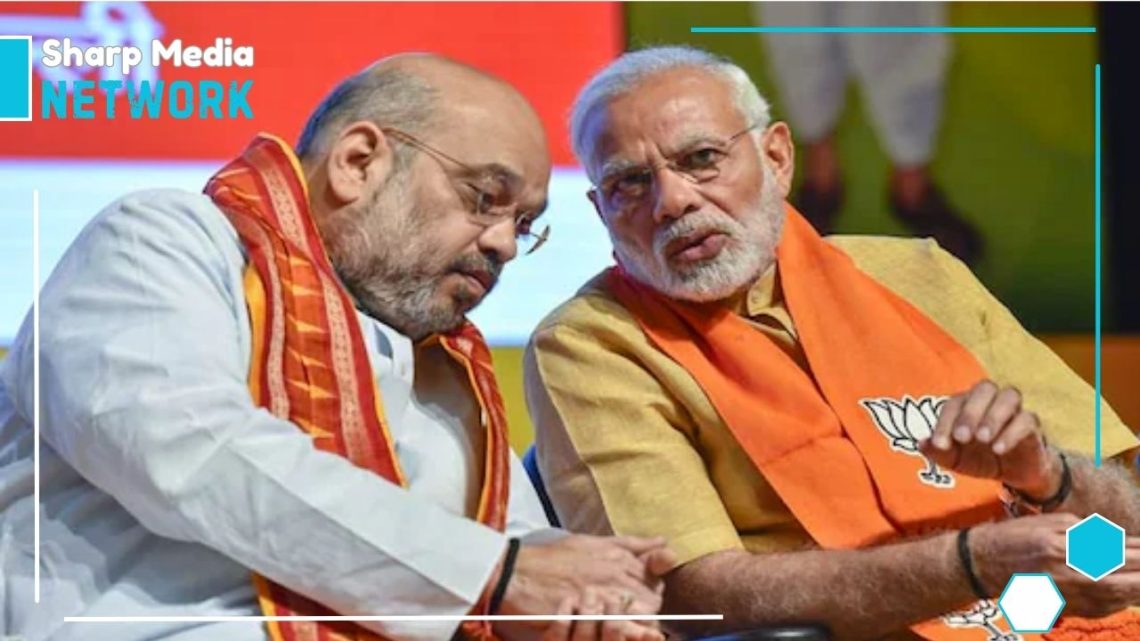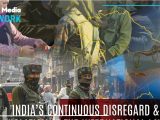
India Celebrate Political Discords within APHC as Defeat of Separatism
March 27, 2025India celebrates the recent political disarray within the All Parties Hurriyat Conference (APHC) as a victory over separatism, but this narrative ignores the underlying tensions and the shifting political landscape in Indian Illegally Occupied Jammu and Kashmir (IIOJK).
The recent severing of ties by two key constituents of the All Parties Hurriyat Conference (APHC) has become a focal point for political discourse in Indian Illegally Occupied Jammu and Kashmir (IIOJK). On March 25, the Jammu and Kashmir People’s Movement (JKPM), led by Shahid Saleem, declared that it had no affiliation with any faction of the APHC or any separatist agenda. Similarly, the Jammu and Kashmir Democratic Political Movement (JKDPM), led by advocate Shafi Reshi, publicly renounced separatism, further distancing itself from the region’s traditional separatist ideology.
These moves were quickly hailed by Indian Home Minister Amit Shah as a sign of progress towards strengthening India’s unity and a blow to the separatist movement in IIOJK. Shah encouraged other groups to follow suit, abandoning separatism and embracing a more inclusive vision for the region. The central government’s narrative framed these shifts as a victory for India’s sovereignty, portraying the disintegration of the APHC as a definitive blow to separatism.
The Jammu and Kashmir People’s Movement, established in 2000, had long been a part of the APHC, a coalition of pro-independence and separatist groups. Its decision to cut ties with the APHC and reject any separatist agenda is seen as a significant ideological shift. The move by Shahid Saleem’s party was presented as evidence that the region’s political future was aligning more closely with the Indian state rather than the pursuit of independence or autonomy.
Similarly, Shafi Reshi’s renunciation of separatism is seen as a key political moment, particularly since Reshi had previously served as political secretary to the late Syed Ali Shah Geelani, a prominent separatist leader. His break with separatism and support for India’s national unity has sent ripples through the political landscape in IIOJK. Reshi’s actions reflect a broader shift among some factions within the region, who are increasingly willing to distance themselves from the separatist cause in favor of pursuing more moderate political options.
However, while the Indian government celebrates these moves as a triumph, the underlying political dynamics in IIOJK remain complex. The region continues to grapple with deep-rooted tensions, particularly following the revocation of Article 370 in 2019. The claims of “defeating separatism” gloss over the fact that many Kashmiris continue to voice their dissatisfaction with India’s policies, and the shifting political alignments of groups like JKPM and JKDPM do not necessarily reflect a broader, lasting change in sentiment among the population.
Furthermore, the fragmentation within the APHC does not necessarily signal the end of separatism in IIOJK. It could instead represent a reconfiguration of the political space in the region, with new alliances forming around different ideologies. While the central government is quick to label these shifts as a success, the situation in IIOJK remains far from resolved, and the region’s future remains uncertain.
India’s celebration of political divisions within the APHC as a defeat of separatism overlooks the nuanced and ongoing struggles of the people of IIOJK. The political landscape may be shifting, but the underlying issues of autonomy, self-determination, and political identity in the region remain pressing. The government’s victory narrative risks oversimplifying a complex situation and ignoring the deeper aspirations of the Kashmiri people.

